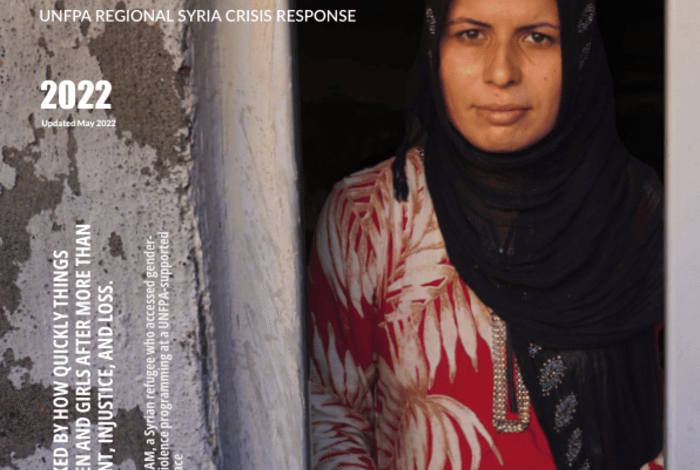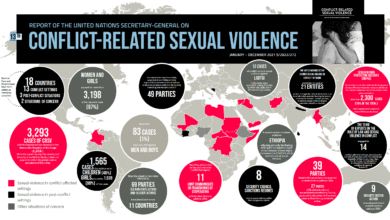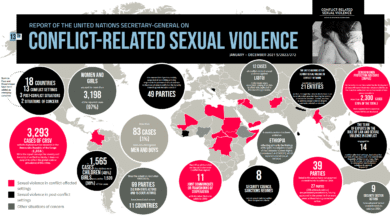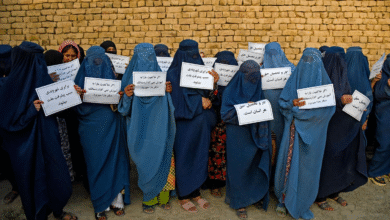UNFPA Funding Crisis: Urgent Call to Reconsider Cuts

The recent UNFPA funding crisis has sparked alarm among global health advocates, emphasizing the urgent need for renewed financial support from the United States. UNFPA, the United Nations agency responsible for reproductive and maternal health, is facing significant cuts due to a longstanding legal provision known as the Kemp-Kasten Amendment. This provision effectively bans U.S. funding to organizations that are falsely accused of supporting coercive abortion practices, a claim the agency has vehemently denied. The decline in US funding threatens to erase years of progress in safeguarding reproductive health services and reducing maternal deaths in vulnerable populations. As a cornerstone of global health, the US’s withdrawal sends ripples through international efforts to enhance women’s health and rights, leading to devastating consequences for millions around the world.
In light of the recent funding challenges faced by the United Nations Population Fund, it is crucial to examine the implications of reduced support for sexual and reproductive health initiatives. The cessation of U.S. financial assistance jeopardizes essential maternal health services, especially in conflict-ridden areas where such support is most needed. This situation calls attention to the broader context of U.S. foreign aid policies and international health commitments, particularly in relation to the controversial Kemp-Kasten Amendment. By addressing the underlying misconceptions that drive these funding decisions, we can better advocate for the continuity of vital services that empower women and improve health outcomes globally. The impact of these funding changes extends far beyond borders, affecting the lives of countless women and families striving for access to reproductive care.
Understanding the UNFPA Funding Crisis
The recent funding crisis faced by the United Nations Population Fund (UNFPA) marks a significant turning point in the fight for global reproductive and maternal health. The United States, a long-standing supporter of UNFPA, has announced a halt on future funding due to the invocation of the Kemp-Kasten Amendment. This provision, established in 1985, aims to restrict US federal funding to organizations implicated in coercive abortion practices or involuntary sterilization, a claim the UNFPA refutes as not only unfounded but also disproven by various investigations, including those conducted by the US Government itself.
With the funding cut reportedly averaging around $335 million, the repercussions on global health initiatives are dire. The US government has funded critical humanitarian projects that directly support women’s health, maternal care, and family planning measures. The loss of these funds stands to exacerbate existing health crises and undermine decades of progress made towards improving reproductive health outcomes worldwide, especially in vulnerable regions affected by conflict and instability.
The Role of the Kemp-Kasten Amendment
The Kemp-Kasten Amendment remains a central factor in discussions about US funding for international reproductive health programs. By restricting funding based on allegations of coercive practices, the amendment impacts organizations like UNFPA that are at the forefront of addressing maternal health issues. This legal provision creates a complex situation where factual misinterpretations can lead to severe budget cuts, affecting millions who rely on vital health services, particularly in maternal and reproductive health.
As UNFPA highlights, the amendment not only threatens financial support but also casts a shadow over the perception of global health initiatives. The unfounded claims underlying the cuts provoke concern among stakeholders about the reliability of such regulations to genuinely protect women’s rights. A re-evaluation of the implications of the Kemp-Kasten Amendment and its application could safeguard funding for essential health services while ensuring that the rights and dignity of women and girls remain at the forefront of health policy.
Impact on Women’s and Maternal Health
The immediate impact of reduced funding to UNFPA is most profoundly felt in women’s and maternal health services. The organization is integral to preventing maternal deaths and provides essential healthcare services that help mitigate risks during childbirth. With the US funding cut, essential support for midwives and healthcare workers in crisis-affected areas is compromised, consequently endangering the lives of countless mothers and their babies. UNFPA emphasized that it has prevented over 17,000 maternal deaths in recent years with US-funded programs, showcasing the direct link between funding and maternal health outcomes.
Moreover, the termination of funding will likely increase the instances of unintended pregnancies and unsafe abortions, putting further strain on global public health. As global health challenges mount, organizations like UNFPA are crucial for advocating and providing safe reproductive health options. Thus, the ongoing withdrawal of US support could reverse progress made in enhancing maternal health services, impacting the most vulnerable populations worldwide.
Call to Action: Reconsidering the Funding Cut
In light of the drastic impacts associated with the funding suspension, UNFPA has made a fervent call for the US Government to reconsider its decisions regarding funding. The agency argues that reinstating financial support is not just a humanitarian responsibility; it is also vital for reclaiming the US’s position as a leader in global public health. By funding UNFPA, the US would not only support positive health outcomes but also combat coercive practices effectively, aligning with larger global health goals.
UNFPA’s track record over the past decades illustrates the profound impact of US investments on preventing maternal deaths and promoting reproductive health. Through collaboration, the agency has forged strong partnerships that save millions of lives. The call for reconsideration thus highlights the need for unity in addressing public health crises, ensuring that critical resources are directed towards safeguarding the health, safety, and dignity of women worldwide.
The Importance of Global Health Partnerships
Long-standing partnerships between the US and UNFPA underline the importance of collaborative efforts in achieving global health objectives. Over the years, US investments have significantly bolstered reproductive and maternal health initiatives, yielding measurable improvements in health outcomes. International cooperation is crucial in ensuring that vulnerable populations receive the care they need, particularly in regions facing sociopolitical challenges. The ongoing funding crisis risks unraveling vital partnerships that have driven progress in women’s health.
As highlighted by the UNFPA, strong partnerships not only enhance funding opportunities but also foster innovative health solutions. By leveraging the expertise and resources of international bodies, the impact on global health can be profound. Without the US backing, the UNFPA faces challenges in implementing crucial programs, emphasizing the need for continuation and expansion of partnerships for sustainable development and health improvements worldwide.
Preserving Rights Under Threat
The current situation surrounding the funding cuts to UNFPA raises critical questions about the preservation of reproductive rights globally. The withdrawal of funding under the auspices of the Kemp-Kasten Amendment suggests a retreat from commitments made to uphold women’s rights. As various organizations work towards empowering women, access to safe reproductive health services must remain prioritized to prevent backsliding into harmful practices that infringe on rights.
Continuing to fight for reproductive rights and health is essential in safeguarding the progress made thus far. UNFPA’s commitment to dialogue and collaboration with the US Government is a step towards finding common ground and advocating for women’s health needs worldwide. The steady erosion of rights can ultimately reverse decades of progress, making the protection and support of these rights more crucial than ever.
Global Responses to the Funding Crisis
The announcement of funding cuts to UNFPA has elicited varied responses from the international community, signaling a broader concern for global health and human rights. Many countries and advocacy groups have expressed alarm, emphasizing that any decrease in support will jeopardize vital reproductive health services and maternal care. Countries that have historically collaborated with the US and UNFPA are now reevaluating their strategies to address the gaps left by this funding crisis.
International organizations have swiftly mobilized efforts to counteract the effects of the funding cuts, working to fill potential voids in support that may arise. The united action by global leaders and health advocates reflects a collective recognition of the importance of maintaining robust funding for reproductive health services. The ongoing dialogue underscores the urgency to preserve critical health initiatives that protect women’s health and rights across the globe.
Future of Reproductive and Maternal Health
The future of reproductive and maternal health hangs in the balance amid this funding crisis. Continued funding for organizations like UNFPA is essential for fostering sustainable healthcare systems that safeguard the well-being of women and children. With US financial support playing a pivotal role, the cuts could dismantle years of hard-won progress in providing access to family planning and healthcare services. The global community’s response will likely shape the trajectory of health services for generations to come.
Looking ahead, advocacy for reproductive rights and health will be more vital than ever. As funding landscapes shift, it is imperative for stakeholders to push for policies that prioritize women’s health, ensuring that essential services are not only sustained but expanded. The commitment to maintaining a world where every woman can access safe healthcare is critical, especially in light of the recent challenges faced by UNFPA and its supporters in the public health arena.
Frequently Asked Questions
What is the UNFPA funding crisis and its implications?
The UNFPA funding crisis refers to the United States’ recent halt on future funding to the United Nations Population Fund (UNFPA), which significantly impacts reproductive and maternal health services globally. This decision, influenced by the Kemp-Kasten Amendment, jeopardizes essential health support for women and girls, particularly in conflict-affected areas, leading to increased maternal deaths and unintended pregnancies.
How does the US funding cut affect reproductive health initiatives by UNFPA?
The US funding cut severely affects reproductive health initiatives by UNFPA by disrupting over 40 existing humanitarian projects with approximately $335 million in support. These projects are crucial for providing access to family planning services, thereby increasing risks of unintended pregnancies and unsafe abortions, particularly in vulnerable populations.
What is the Kemp-Kasten Amendment’s role in the UNFPA funding crisis?
The Kemp-Kasten Amendment plays a critical role in the UNFPA funding crisis as it allows the US government to deny funding to organizations that are allegedly involved with coercive abortion or involuntary sterilization. The amendment was cited as the basis for the recent funding termination, despite UNFPA’s refutations of these accusations.
What services will be impacted by the UNFPA funding cuts?
The UNFPA funding cuts will impact vital services such as maternal health care, family planning, and support for midwives. These areas are essential in preventing maternal deaths and ensuring safe childbirth, especially in regions experiencing humanitarian crises where health services are desperately needed.
What actions is UNFPA taking in response to the US funding cut?
In response to the US funding cut, UNFPA is actively urging the US government to reconsider its decision, advocating for the importance of global public health funding. The agency remains committed to providing essential reproductive health services and upholding the safety and dignity of women and girls worldwide.
How has US funding contributed to UNFPA’s success in maternal health?
US funding has been pivotal to UNFPA’s success in maternal health, helping to prevent over 17,000 maternal deaths and reducing the rates of unintended pregnancies and unsafe abortions in recent years. This support has proven to be a cost-effective investment in global health, generating long-term positive outcomes.
What are the potential consequences of the UNFPA funding crisis for women globally?
The potential consequences of the UNFPA funding crisis for women globally include increased maternal mortality rates, reduced access to reproductive health services, and a rise in unintended pregnancies. These outcomes threaten the progress made in women’s rights and health, particularly in underserved and conflict-affected regions.
| Key Point | Details |
|---|---|
| Funding Cut by the US | The US has halted future funding to UNFPA, invoking the Kemp-Kasten Amendment. |
| Impact on Health Services | This decision will slash critical health services for women and girls globally. |
| Allegations Against UNFPA | Claims of coercive practices in China, which UNFPA states have been disproven. |
| Financial Impact | Funding cut affects 40 humanitarian projects, totaling approximately $335 million. |
| Effects on Vulnerable Groups | UNFPA warns that the loss of funding will increase maternal mortality rates. |
| US Contributions Historical Context | The US has historically contributed to saving lives and strengthening global health systems. |
| UNFPA’s Appeal to the US | UNFPA calls for the US to reconsider its funding decision to uphold global health. |
Summary
The UNFPA funding crisis has far-reaching implications for women’s health and reproductive rights globally. With the US halting its financial support, UNFPA warns that millions of vulnerable women and girls may lose access to critical health services, leading to an increase in maternal deaths and unintended pregnancies. The agency appeals for the US to reconsider its ban, highlighting the significant positive impact of previous funding on global health initiatives.




